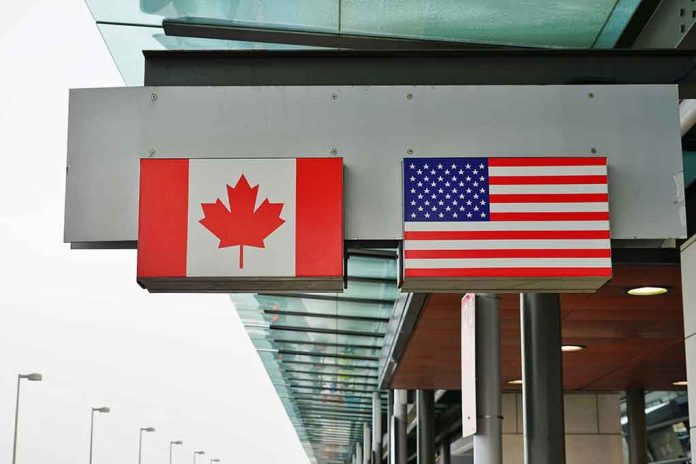
Amid mounting economic challenges and political turmoil, Canadian Prime Minister Justin Trudeau has resigned, leaving a nation questioning the Liberal Party’s future.
At a Glance
- Prime Minister Justin Trudeau has resigned amid economic criticism and political turmoil.
- Trudeau will remain in office until the Liberal Party selects a new leader.
- Parliament is suspended until March 24 for the leadership race.
- Finance Minister Chrystia Freeland’s resignation fueled the call for Trudeau’s exit.
Trudeau’s Decision to Resign
Justin Trudeau announced his resignation following criticism over his economic policies, which have been blamed for issues like rising inflation and high living costs. Trudeau, who had intended to run for a fourth term, recognized the inability to effectively lead while experiencing internal party conflicts.
He stated, “This country deserves a real choice in the next election, and it’s become clear to me that if I’m having to fight internal battles, I cannot be the best option in that election.”
The resignation was further propelled by Chrystia Freeland’s departure as Finance Minister, who cited disagreements with Trudeau’s fiscal strategies. With Freeland and other Liberal MPs calling for change, Trudeau’s position became untenable amid economic discontent.
Political Implications and Next Steps
The Liberal Party plans to hold a leadership contest, during which Trudeau will remain as prime minister. Parliament is to remain suspended until March 24 to facilitate this process. The anticipated appointment of Dominic LeBlanc as an interim leader is seen as a step towards revitalizing the party’s standing ahead of potential elections, likely expedited by opposition parties planning a no-confidence vote.
“Chrystia has been by my side for close to 10 years now. She has been an incredible political partner through just about everything we have done as a government and as a party over the past decade,” Trudeau said.
Trudeau symbolized Canada’s liberal resurgence after over a decade of Conservative rule. However, as Canada’s political landscape shifts, so too does the challenge of maintaining leadership amid economic and external pressures, notably the economic tensions posed by policy differences with U.S. President-elect Donald Trump.
Economic and External Factors
Trudeau’s government faces criticism for high immigration rates contributing to a strained housing market and rising costs of living, factors linked to voters’ declining confidence. The impact of potential tariffs under Trump’s administration further pressures Canada financially, necessitating careful negotiation strategies moving forward.
“For the past number of weeks, you and I have found ourselves at odds about the best path forward for Canada,” Freeland said to Trudeau in her resignation letter. “Our country today faces a grave challenge.”
The Liberal Party’s leadership transition offers potential to refocus on economic stability and diplomacy, crucial amidst both domestic and international challenges. Trudeau’s exit marks an end to a significant chapter in Canadian politics, setting the stage for new leadership and strategic recalibrations addressing Canada’s socio-economic and global positioning.





